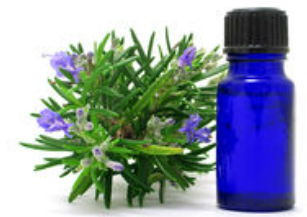Discover Rosemary Essential Oil

Rosemary essential oil is a popular natural remedy that has been used for centuries for various purposes. It is extracted from the rosemary plant, a woody perennial herb that is native to the Mediterranean region. The oil is widely used in aromatherapy and for medicinal purposes due to its potent properties. In this article, we will explore the main chemical compounds of rosemary essential oil, its health benefits, and how to use it effectively.
Extraction Process of Rosemary Oil
The process of distillation of rosemary essential oil typically involves the following steps:
- Harvesting the Rosemary Plant: Rosemary leaves are harvested when the plant is in full bloom, typically in the morning when the essential oil content is at its highest.
- Preparing the Plant Material: The harvested rosemary leaves are washed, dried, and crushed to release the essential oil. The plant material is then loaded into a still, which is a large metal container used for distillation.
- Adding Water: Water is added to the still along with the plant material. The amount of water used depends on the size of the still and the amount of plant material being distilled.
- Heating the Still: The still is then heated using a source of heat such as a fire or an electric heater. The heat causes the water to boil, which releases the essential oil from the plant material.
- Collecting the Essential Oil: The steam that is produced during the boiling process carries the essential oil along with it. The steam is then cooled using a condenser, which causes it to condense back into a liquid form. The essential oil is then separated from the water and collected.
- Testing and Bottling: The collected essential oil is then tested for purity and quality before being bottled for sale or further processing.
The distillation process can vary depending on the specific equipment used and the desired end product. Some manufacturers may use alternative methods such as steam distillation or solvent extraction to extract the essential oil from the plant material. However, the traditional method of distillation remains the most common method for producing high-quality rosemary essential oil.

Chemical Compounds In Rosemary Essential Oil
Rosemary essential oil is composed of various chemical compounds, including alpha-pinene, beta-pinene, camphor, bornyl acetate, and cineole. These compounds are responsible for the oil's unique aroma and therapeutic properties. Alpha-pinene is a powerful anti-inflammatory and antiseptic agent, while beta-pinene has antioxidant and antibacterial properties. Camphor is a natural pain reliever and can help ease respiratory issues. Bornyl acetate is a relaxant and anti-inflammatory, while cineole is an expectorant and a decongestant.
What Are The Health Benefits of Rosemary Essential Oil?
Rosemary essential oil has many health benefits that make it a valuable addition to any natural remedy kit. Some of the health benefits of rosemary essential oil are:-
Improves Memory and Concentration
Rosemary essential oil can help improve cognitive function, memory, and concentration. Studies have shown that inhaling rosemary essential oil can help improve alertness and enhance cognitive performance.
Relieves Pain and Inflammation
Rosemary essential oil has anti-inflammatory properties that can help reduce pain and inflammation in the body. It can be used topically to relieve sore muscles, joint pain, and headaches.
Promotes Hair Growth
Rosemary essential oil has been used for centuries to promote hair growth and prevent hair loss. The oil can help stimulate hair follicles and improve circulation to the scalp, which can help promote hair growth and prevent hair loss.
Boosts Immune System
Rosemary essential oil has antimicrobial and antioxidant properties that can help boost the immune system and protect the body against infections and diseases. It can also help reduce the severity of cold and flu symptoms.
Eases Respiratory Issues
Rosemary essential oil can help ease respiratory issues such as coughs, colds, and congestion. It has expectorant properties that can help loosen phlegm and mucus in the respiratory tract, making it easier to breathe.

How Does Rosemary Essential Oil Benefit Cognitive Function?
Rosemary essential oil has been shown to improve cognitive function in several ways. One of the main active compounds in rosemary essential oil is called 1,8-cineole, which has been found to have neuroprotective effects and to enhance memory and learning.
Here are some of the ways in which rosemary essential oil may improve cognitive function:
- Enhancing Memory: Studies have shown that inhaling rosemary essential oil can improve memory recall and retention. This is thought to be due to the 1,8-cineole compound, which has been found to increase the levels of a neurotransmitter called acetylcholine, which is important for memory and learning.
- Increasing Alertness: Rosemary essential oil has a stimulating effect on the brain, which can help increase alertness and mental clarity. This can be especially helpful for people who need to stay focused and alert for long periods of time, such as students or professionals.
- Reducing Stress and Anxiety: Stress and anxiety can have a negative impact on cognitive function, making it difficult to concentrate and remember information. Rosemary essential oil has been shown to have calming and stress-reducing effects, which can help improve cognitive function in stressful situations.
- Improving Mood: A positive mood can also have a positive impact on cognitive function. Rosemary essential oil has been shown to have mood-enhancing effects, which can help improve cognitive function in people who are feeling down or depressed.
Overall, rosemary essential oil can be a useful tool for improving cognitive function and enhancing mental performance. It can be used in a variety of ways, including inhalation, massage, and aromatherapy, to help improve memory, increase alertness, and reduce stress and anxiety.
What are the best ways to use Rosemary Essential Oil?
There are many ways to use rosemary essential oil, including:
- Aromatherapy -Rosemary essential oil can be used in aromatherapy to help improve cognitive function, memory, and concentration. You can diffuse the oil in a diffuser or add a few drops to a hot bath.
- Topical Use - Rosemary essential oil can be used topically to relieve pain and inflammation in the body. Mix a few drops of the oil with a carrier oil such as coconut or almond oil and massage into the affected area.
- Hair Care - Rosemary essential oil can be added to shampoo or conditioner to promote hair growth and prevent hair loss. Add a few drops to your regular hair care routine for best results.
- Steam Inhalation - Rosemary essential oil can be used in steam inhalation to help ease respiratory issues such as coughs and congestion. Add a few drops of the oil to a bowl of hot water, cover your head with a towel, and inhale the steam.
Culinary use of Rosemary Oil
Rosemary essential oil can be used in cooking as a flavoring agent to add a delicious and aromatic taste to dishes. Here are some ways in which you can use rosemary essential oil in cooking:
- Marinades: Add a few drops of rosemary essential oil to your favorite marinade recipe to give your meat, poultry, or fish a tasty and aromatic flavor.
- Salad Dressings: Add a few drops of rosemary essential oil to your favorite salad dressing recipe to give it a unique and delicious flavor.
- Roasted Vegetables: Drizzle some rosemary essential oil over your roasted vegetables to add a flavorful twist to your side dishes.
- Baked Goods: Add a few drops of rosemary essential oil to your bread or pastry recipes for a savory and aromatic flavor.
When using rosemary essential oil in cooking, it is important to use a high-quality, food-grade oil that is safe for consumption. It is also important to use the oil sparingly, as it is highly concentrated and can easily overpower other flavors in your dishes. Start with a small amount and add more as needed to achieve the desired flavor.
What does Rosemary Essential Oil smell like?
The smell of rosemary essential oil is distinct and herbaceous, with a strong, woody aroma. It has a fresh and invigorating scent that is often described as camphoraceous, with a slight hint of sweetness. Some people also describe the scent as being reminiscent of eucalyptus or pine. Overall, the scent of rosemary essential oil is uplifting and energizing, and it is often used in aromatherapy to promote mental clarity and focus.
What other essential oils does Rosemary Essential Oil blend well with?

Rosemary essential oil blends well with a variety of other essential oils, including:
- Peppermint: This blend is refreshing and invigorating and can help stimulate mental clarity and focus.
- Lavender: This blend is calming and relaxing and can help promote relaxation and sleep.
- Lemon: This blend is uplifting and energizing and can help promote mental clarity and focus.
- Eucalyptus: This blend is refreshing and invigorating and can help ease respiratory issues.
- Tea Tree: This blend is antibacterial and antifungal and can help fight infections and promote healing.
- Cedarwood: This blend is grounding and calming and can help promote relaxation and stress relief.
- Frankincense: This blend is calming and grounding and can help promote meditation and spiritual practices.
These essential oil blends can be used in diffusers, massage oils, or added to bath water for a soothing and therapeutic experience. It is important to always dilute essential oils before applying them to the skin and to use caution when using them around children, pregnant women, and people with sensitive skin.
In conclusion, rosemary essential oil is a valuable natural remedy that has many health benefits. Its chemical compounds make it a potent agent against pain, inflammation, and respiratory issues. It can be used in various ways, including aromatherapy, topical use, hair care, and steam inhalation.



New! Comments
Have your say about what you just read! Leave a comment in the box below.